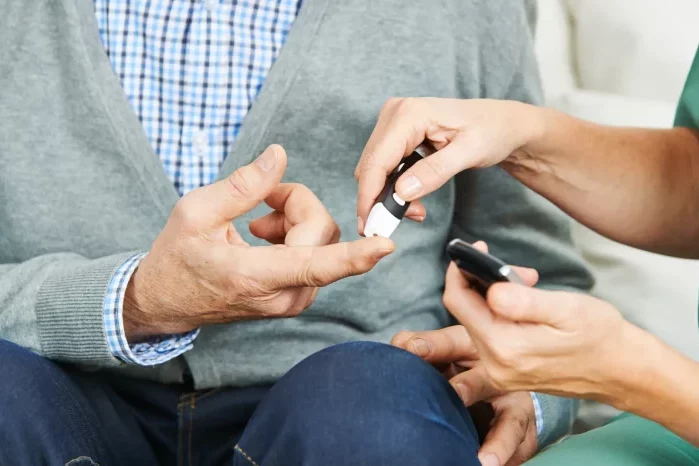Type 1 diabetes is a chronic condition that requires diligent management to maintain blood sugar levels within a healthy range. Despite best efforts, there are instances where individuals with type 1 diabetes may experience severe hypoglycemia, leading to unconsciousness. In such situations, prompt and appropriate action is crucial to prevent further complications and ensure the individual’s safety. Understanding what to do if a type 1 diabetic passes out can potentially save lives and mitigate the risks associated with hypoglycemia.
Recognizing the Signs of Severe Hypoglycemia
Before addressing how to respond when a type 1 diabetic passes out, it’s essential to recognize the signs of severe hypoglycemia, which may precede unconsciousness. Symptoms of hypoglycemia can vary among individuals but often include:
Shakiness or tremors
Sweating
Paleness
Dizziness or lightheadedness
Confusion or difficulty concentrating
Weakness or fatigue
Irritability or mood changes
Blurred vision
Fast heartbeat
Headache
Hunger
If left untreated, hypoglycemia can progress to more severe symptoms, including loss of consciousness, seizures, and even coma. Therefore, it’s crucial to intervene promptly when signs of hypoglycemia manifest, especially in individuals with type 1 diabetes who are at higher risk.
Immediate Steps When a Type 1 Diabetic Passes Out
When encountering a type 1 diabetic who has lost consciousness due to severe hypoglycemia, it’s essential to act quickly and decisively. Follow these steps to provide appropriate assistance:
Assess the Situation
Before administering any aid, ensure the safety of both the individual and yourself. Check for any immediate dangers, such as traffic if outdoors or hazards in the surrounding environment.
Check for Medical Identification
Look for medical identification jewelry or cards that indicate the person is diabetic. This information can provide valuable insights into the individual’s condition and help guide your response.
Call for Emergency Assistance
If the individual is unresponsive or unconscious, immediately call for emergency medical assistance. Time is of the essence in such situations, and professional medical intervention may be necessary to stabilize the person’s condition.
Administer Glucagon (if available)
If a glucagon emergency kit is accessible, follow the instructions provided to administer the medication. Glucagon is a hormone that raises blood sugar levels and is often used to treat severe hypoglycemia in individuals with diabetes.
Monitor Vital Signs
While waiting for emergency medical services to arrive, monitor the individual’s vital signs, including their pulse and breathing. If trained and equipped to do so, consider performing basic life support measures, such as CPR, if necessary.
Position the Person Correctly
If the individual is breathing normally, gently place them in the recovery position to help maintain an open airway and prevent choking on vomit or saliva. Ensure that their head is tilted back slightly and their chin is lifted.
Administer Oral Glucose (if conscious)
If the person regains consciousness and is able to swallow safely, provide them with a fast-acting source of sugar, such as glucose tablets, fruit juice, or soda (not diet or sugar-free). Avoid giving foods or drinks containing fat, as they can delay the absorption of glucose.
Stay with the Person
Remain with the individual until emergency medical help arrives. Reassure them and keep them calm, as stress and anxiety can exacerbate hypoglycemic episodes. Continue to monitor their condition closely and be prepared to provide further assistance if needed.
Preventing Future Episodes of Severe Hypoglycemia
While immediate intervention is crucial when a type 1 diabetic passes out due to severe hypoglycemia, efforts to prevent future episodes are equally important. Here are some strategies to help minimize the risk of hypoglycemic emergencies:
Regular Blood Sugar Monitoring
Encourage individuals with type 1 diabetes to monitor their blood sugar levels frequently, especially before meals, exercise, and bedtime. This allows for timely adjustments to insulin dosage and carbohydrate intake to maintain stable blood sugar levels.
Balanced Meal Planning
Emphasize the importance of consuming balanced meals that include carbohydrates, proteins, and healthy fats. Avoiding large fluctuations in carbohydrate intake can help prevent sudden drops in blood sugar levels.
Consistent Medication Management
Ensure that individuals with type 1 diabetes adhere to their prescribed insulin regimen and take medications as directed by their healthcare provider. Skipping doses or taking incorrect amounts can disrupt blood sugar control and increase the risk of hypoglycemia.
Hypoglycemia Awareness Training
Educate individuals with type 1 diabetes and their caregivers about recognizing the early signs of hypoglycemia and how to respond appropriately. This includes knowing when and how to use glucagon emergency kits and other rescue treatments.
Emergency Preparedness
Encourage individuals with type 1 diabetes to carry identification indicating their medical condition and to keep emergency supplies, such as glucose tablets or gel, readily available at all times. Additionally, inform family members, friends, and coworkers about how to assist in case of a hypoglycemic emergency.
Conclusion
Knowing what to do if a type 1 diabetic passes out due to severe hypoglycemia is essential for ensuring their safety and well-being. Prompt action, including calling for emergency assistance, administering glucagon if available, and providing oral glucose, can help reverse the hypoglycemic episode and prevent further complications. Equally important is implementing strategies to prevent future episodes through regular blood sugar monitoring, balanced meal planning, consistent medication management, hypoglycemia awareness training, and emergency preparedness. By working together to raise awareness and promote proactive management of type 1 diabetes, we can help individuals lead healthier and safer lives.



























